#hooded justice/captain metropolis
Text
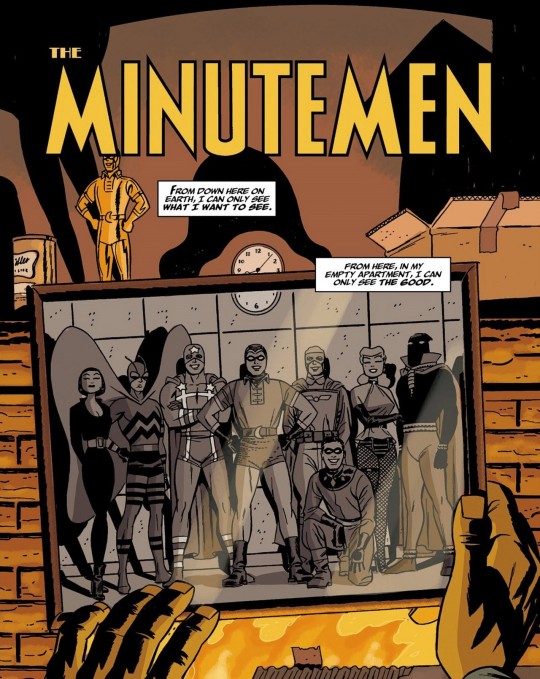
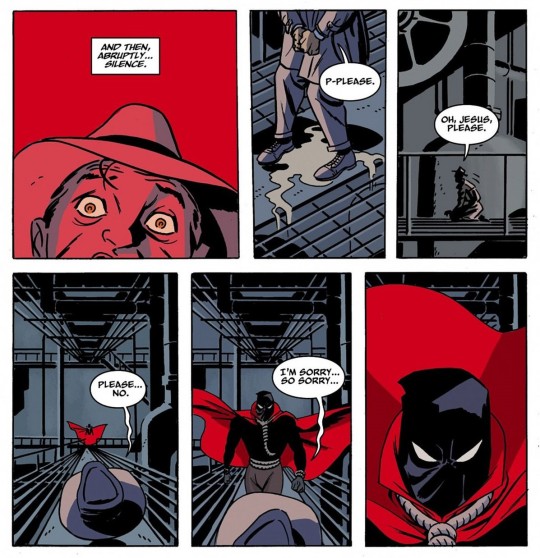
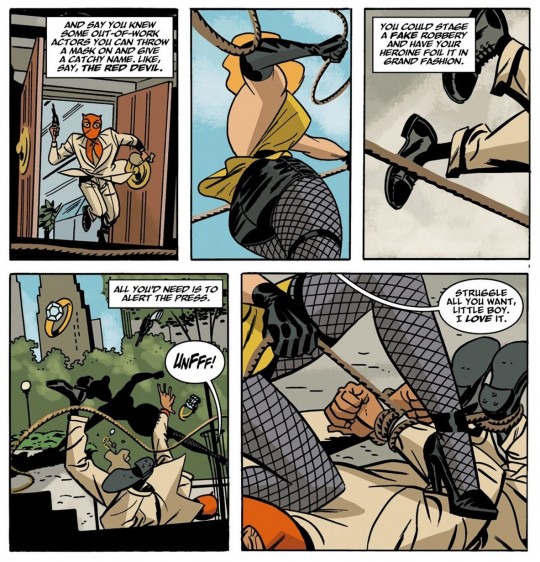
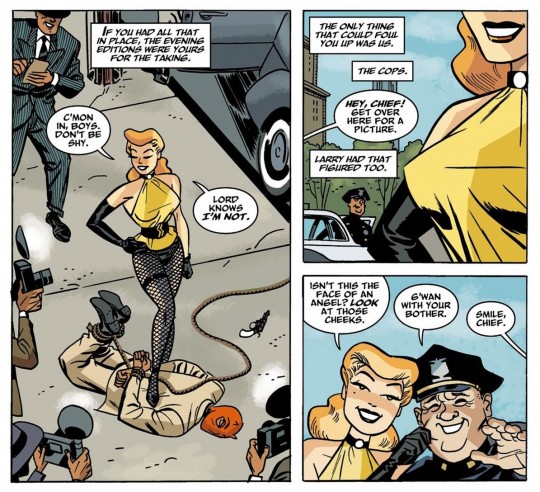
Nite Owl, Hooded Justice, Silk Spectre, Comedian, Mothman, Dollar Bill, Silhouette and Captain Metropolis by Darwyn Cooke
#minutemen#nite owl#hooded justice#silk spectre#comedian#dollar bill#silhouette#captain metropolis#darwyn cooke#dc comics#modern age
13 notes
·
View notes
Photo





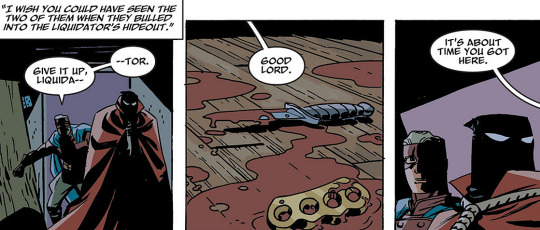
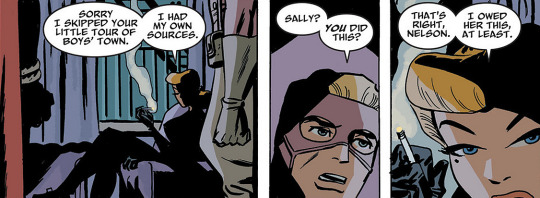
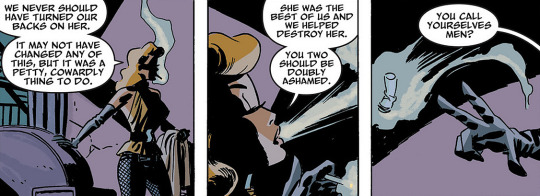


She was the best of us and we helped destroy her.
Before Watchmen: Minutemen (2012) #4
#before watchmen: minutemen#watchmen#minutemen#sally jupiter#silk spectre#ursula zandt#silhouette#hooded justice#nelson gardner#captain metropolis#dc#dc comics#u can reblog#god the way this is like. the greatest comic ive seen in my life
42 notes
·
View notes
Video
This is a video I made for my youtube channel.
Here’s the link to my channel: https://www.youtube.com/channel/UCh0s4nbMEl2QBmapBANafeQ/videos
#watchmen#watchmen hbo#hooded justice#captain metropolis#nite owl#silk spectre#the comedian#watchmen mothman#watchmen dollar bill#watchmen silhouette#rorschach#ozymandias#sister night#looking glass#watchmen red scare#watchmen pirate jenny#fight scene#kkk beatdown#guile's theme goes with everything
6 notes
·
View notes
Note
Kinda of random but what do you think of Alan's Moore comments about people liking comic book movies could lead into fascism? Seems like bitter old man territory but what do you think?
I think it's fair to say that fascism has been something of an obsession of Alan Moore's and a recurring although not omnipresent theme in many of his works.
While Miracleman is technically an expy of Captain Marvel, I would argue that the series is Moore's most extended commentary on Superman instead and especially the idea of the ubermensch. In Miracleman, our protagonist is initially thought to have been made into a superhero by a benevolent enlightened scientist, but eventually we learn that Miracleman is the product of an Operation Paperclip Nazi science project called the Zarathusa Project designed to create the literal Nietzschean Ubermensch, complete with a fixation on "blond gods" and a eugenicist breeding program. A superhero fight in the midle of London causes mass civilian casualties on the scale of an atomic bomb going off. Ultimately, Miracleman effectively overthrows Thatcher's government and rules as an enlightened despot before eventually leaving Earth for space.
Likewise, I think Watchmen is Moore's most extended commentary on masked vigilantism and thus on Batman. In Watchmen, the phenomenon of vigilantism is repeatedly associated with right-wing politics: Hooded Justice is a German circus strongman who has pro-Nazi politics; Captain Metropolis wanted his superhero teams to target "black unrest," "campus subversion," and "anti-war demos;" and the Comedian is a brutal nihilist who ultimately joins the U.S security state where he cheerfully follows orders to assassinate JFK and Woodward and Bernstein, commit atrocities in Vietnam, kill protesting hippies, etc. Finally, there's Rorschach, Moore's most famous mis-interpreted creation - Rorschach is a paranoid conspiracy theorist who's an anti-communist, anti-liberal, militant and militaristic nationalist, homophobe, misogynist, and avid follower of the John Birch Society-like New Frontiersman.
And then there's V for Vendetta, which I would argue is Moore's attempt to create a masked vigilante superhero with his own anarchist politics. In this story, the vigilante isn't a crimefighter but rather a revolutionary who seeks the overthrow of a fascist state and the creation of an anarchist utopia.
Moreover, his more recent comments about comic book movies being linked to fascism are arguably just part of his much longer-running commentary that superheroes as a concept are at the very least proto-fascist.
Having read a lot of Moore's work and interviews on the subject, I don't find his critique compelling. I think his definition of fascism is far too loose, I think his lens on the superhero genre is overly narrow, and I think his mode of analysis tends to neglect the vital area of historical context.
Definitions
So let's start with Moore's definition of fascism. I think Moore tends to really over-emphasize the whole idea of the Nietzschean ubermensch and the use of force to solve problems, and more recently he's been on this weird kick of saying that nostalgia and a childlike desire for easy solutions leads to fascism. I have several problems with this definition:
the first is that, as I've talked about in the past, fascism is a very complex historical phenomenon that can't be boiled down to a single idea, and in particular the idea of the ubermensch is a pretty small part of the German case (and even then how do you balance it against Nazism's more anti-individualistic aspects, like the mass party and the mass party organization).
the second is that the idea of a larger-than-life individual using physical prowess to solve problems is not unique to fascism. After all, during the 30s, you also had the Soviet Union promoting the heroic ideal of Stakhanovitism and the depiction of the heroic male factory worker in socialist realism. More importantly, the idea of a "larger-than-life individual using physical prowess to solve problems" is basically the same description for any number of literary figures from pulp cowboys to the Greek heroes of the Iliad and the Oddessy to the epic of Gilgamesh.
the third is that I think Moore's definition overlooks the actual drivers of the rise of contemporary fascism. Anti-semitism, racism, homophobia and transphobia, misogyny - all of these are real social and cultural forces that are actually motivating people to join the ranks of the alt-right, to commit massacres, to riot at the Capitol, and so forth. It is incredibly self-involved to think that superheroes and superhero movies are worth discussing in the same breath. At the end of the day, they're harmless entertainment compared to the real political issues that need to be tackled.
Moore's Model of Superheroes
Here's where I'm going to say something that's going to be a bit controversial - I don't think Alan Moore has read widely enough in the superhero genre to make an accurate assessment of its relationship to fascism. If we look at his comics work, and we look at his writings, and we look at his interviews, Moore's mental model of the superhero really only includes two figures, Superman as the representative of the superpowered ubermensch and Batman as the representative of the masked vigilante crimefighter. Notably, Moore hasn't really touched the last of the Big Three - Wonder Woman, a superhero with a strong legacy of radical left-wing politics. I do think we have to mention, given Moore's somewhat troubled history when it comes to issues of gender, that Moore's model of the superhero doesn't include any female superheroes (or for that matter, any superheroes of color or queer superheroes). (EDIT: I should clarify - Promethea is Moore's version of Wonder Woman, but she doesn't really come up in his discussions of fascism, and her thematic profile has more to do with Moore's interests in magic.)
And other than Captain Britain, Moore never worked with any Marvel character and basically ignores them.
To me, this is like having a career as a painter and never working with colors. Moore's model of the superhero leaves out the Fantastic Four and how their flawed psychologies revolutionized the industry and the whole idea of the superhero-as-explorer, it leaves out Spider-Man and the idea of the superhero-as-everyman whose central struggle is about work-life balance and altruism, and most importantly it leaves out the X-Men and the idea of the mutant metaphor.
If as a critic you're going to make grand pronouncements about something as morally evil as fascism, I think it really is incumbent on you to have read and analyzed widely rather than cherry-picking a couple of case studies. Especially if you have something of a tendency to mis-characterize those case studies by ignoring historical context.
Historical Context
So let's talk about Superman and Batman and their emergence in the 1930s. One vital bit of context is that the U.S experienced a significant crime wave in the 1920s and 1930s as Prohibition encouraged the rise of organized crime and then the Great Depression spurred the rise of kidnapping and bank robbery gangs. Moreover, municipal police forces tended to be wildly corrupt, accepting bribes from organized crime to let them operate with impunity, while not letting up in the slightest in their brutal oppression of workers and minorities.
In this context, I think the idea of vigilantism - while it has an undeniably racist legacy dating back to Reconstruction - is not purely a conservative phenomena. It's also an expression of a desire for help from somebody, anybody when the powers that be are of no help. And at the end of the day, unsanctioned use of force can equally be traced back to left-wing self-defense efforts from the Panthers back to the Communist Party's streetfighting corps to unions packing two-by-fours on the picket line - so I don't think we can simply equate punching a bad guy with racist lynch mobs and call it a day.
So let's talk about Superman and the ubermensch. I think Moore has a bad tendency to focus on his nightmare scenrio of a godlike being tyrannizing and destroying hapless humanity, while minimizing the actual ideas of Siegel and Shuster. He tends to take their use of the Nietzschean as a straighforward invocation instead of the clear subversion it was intended to be - rather than a blond god who imposed tyrannical rule with horrific violence, Siegel and Schuster made their Superman a dark-haired Moses allegory, who rather than solely fighting crime acted to stop wife-beaters, war profiteers, and save the life of death row inmates, and whose secret identity was of a crusading journalist who uncovered corrupt politicians.
To be fair, Alan Moore admits that Superman started out as "very much a New Deal American” - but because this kind of does near-fatal damage to his argument, he quickly minimizes that by saying that Superman got co-opted and thus it doesn't count. This is some No True Scotsman bullshit - Moore knows that his example just imploded so he tries to wriggle out of it by arguing that Superman sold out to the Man. If we go back to the actual historical evidence, we can see that at the outset of the Red Scare, the Superman radio show went on a crusade against the Klan, and throughout the conservative 1950s, Superman was used to propagandize liberal values of religious and racial equality:

So much for selling out.
On the other hand, Batman is a tougher case, given that his whole deal is being a masked vigilante who wages an unending war on crime to avenge his murdered parents. So is Batman an inherently fascist figure, a wealthy sadist who spends his time brutally beating the poor and the mentally ill when he could be using his riches to tackle social issues? I would argue that this version of Batman is actually pretty recent - very much a legacy of the work of Frank Miller and then the post-9/11 writings of Christopher Nolan, Johnathan Nolan, and David Goyer - and that there have been many different Batmen with very different thematic foci.
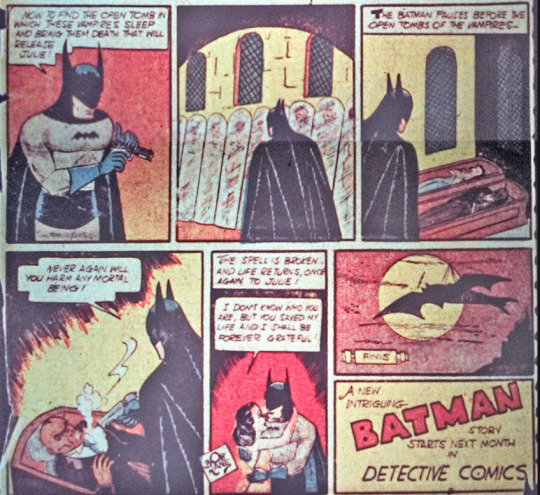
For example, the early Batman was as much a figure of horror as he was of superheroics - he fought Frankensteins and Draculas, he killed with silver bullets, etc. Then in the 40s and 50s, you got the much more cartoony and light-hearted Batman who pretty much exclusively fought equally oddball supervillains in such a heightened world of riddles and giant pennies and mechanical T-Rexes that I don't think you can particularly describe it as "crime-fighting." Then in the 1960s, you have the titanic influence of the Batman TV show, where Adam West as Batman was officially licensed by the Gotham P.D (so much for vigilantism) and extolled the virtues of constitutional due process and the Equal Pay Act in PSAs and episodes alike. You can call the 1966 Batman a lot of things, but fascist isn't one of them.
Conclusion
I want to emphasize at the end of the day that I'm a huge Alan Moore fan; I've read most of his vast bibliography, I find him a fascinating if very odd thinker and critic, I've even tried to read his mammoth novel Jerusalem (which is not easy reading, let me tell you). At the same time, it's important not to treat creators, even the very titans of the medium, as incapable of error. And in this case, I think Alan Moore is simply wrong about fascism and superheroes and people should really stop asking him about it, because I don't think he has anything new to say about it.
154 notes
·
View notes
Text
You ask the Watchmen their Pronouns:
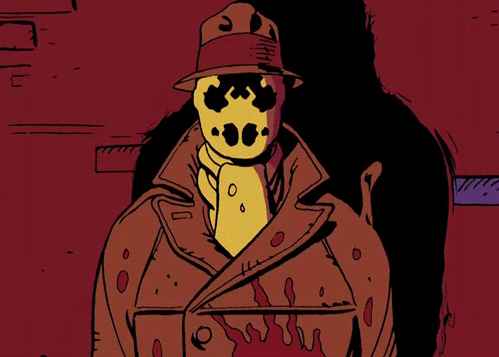
Rorschach: The fucks a pronoun? *shoves spoonful of beans into mouth*
Nite Owl I: Im not sure I know what those are… They… no! He! I’m quite certain!
Nite Owl II: He/They, no préférence, either work. What about you, which pronouns do you prefer? Archie uses They/Them!
Silk Spectre I: She/Her my dear, you look like you could use a drink! *smirks with flirty eyes*
Silk Spectre II: She/They, thanks for asking! *smiles sweetly*
Ozymandius: He/Him, but you should already know that…
Doctor Manhattan: I have no need for pronouns
The Comedian: *shots you* Nor/Mal
Captain Metropolis: uh… He/Him… I think, and yours?
Hooded Justice: *stares in black hood* Justice… just Justice.
@rorschach-thumbtack
#pronouns#the watchmen#Rorschach#nite owl#nite owl II#silk spectre#silk spectre II#ozymandias#the comedian#doctor manhattan
30 notes
·
View notes
Text
9 people you'd like to get to know better
Been feeling a bit invisible lately, since I'm not very social/active, so I was surprised (in a pleasant way) to see that @aptenodykes tagged me. So thanks for that! 😊
Three ships: Bill x Holden (Mindhunter), Hannigram and Hooded Justice x Captain Metropolis (Watchmen)
First ever ship: Oh gosh, it's all a vague blur. Probably two dudes from Yu-Gi-Oh! Although the first smut fic I remember reading was Cowboy Bebop (Vicious x Gren I think?)
Last song: Would You Love a Creature by Sister
Last film: The Autopsy of Jane Doe
Currently reading: Hoe overleef ik mijn ouders? (en zij mij!)
Currently watching: Star Trek: Lower Decks, Bob's Burgers, Taskmaster and some YouTube channels (Vet Gezellig, Rebecca Denise and Georgia Marie)
Currently consuming: My last meal was half a reheated vegan pizza
Currently craving: Better mental health ✌️ (and the doritos in my cupboard)
I tag: @8ripecunts, @skullduggary, @birdneydraws, @impracsoph, @blaineskindagay and @yallwildinrn. Only if you feel like it of course.
And if anyone else is interested; consider yourself tagged!
3 notes
·
View notes
Note
"⌛" A memory to do with Dan?
[XOX]
Liz knew there was an underlying queerness to Dan. Being pansexual herself, there was the smallest of hints Liz had picked up on over the months they were together.
It was quiet in the study, as Dan had been hunched over book after book jotting down notes and ideas for future gadgets. Liz basked in the domestic silence as she flipped through one of the many birdwatch books Daniel owned. But her eyes were steadily on the man before her. Of course the brunet sensed eyes on him and looked up from his desk.
".. Wh.. What?" Dan had the sheepish of smiles on his face as he let out a nervous chuckle.
"Nothing~" Liz cooed, a grin growing across her own face at the sight. "You just look cute is all."
"Shut up." Dan chuckled again as his face flushed with a bit of color.
God, how adorable he was. How easily he could make her heart melt. Liz's thoughts were soon interrupted.
"Besides, I know that look." The brunet spoke with more confidence. "Means nothing but trouble."
"You read me that well, huh?" Liz smirked, thinking up the best way to tease Daniel while genuinely mapping out a rather touchy subject to most. "Who's your favorite male vigilante? Besides our dear Hollis Manson."
Dan seemed a bit surprised by the question, but gazed down in thought nonetheless. "... Well, if I had to pick anyone besides Nite Owl, Captain Metropolis and Hooded Justice are one of the top masked heroes I'd choose as my favorites. Popular picks, I know." Dan huffed, getting ready to defend them. "I would say Ozymandias, but Adrian sometimes just.. rubs me the wrong way. Maybe it's the businessman in him. Selling action figures of himself, and all." He shrugged.
Instead Liz only arched an eyebrow upward.
"What?" Dan asked in confusion at Liz's reaction.
".. What are your thoughts on Silhouette being kicked out of Minutemen?" Liz continued.
Now Dan was growing suspicious as his eyes narrowed toward his girlfriend lounging across the room. However he answered. Albeit rather tensely. "Hollis mentioned it a few times. How he liked Ursula, and felt bad about excluding her, but that he didn't care for her being so open about her sexuality."
"That's Hollis' opinion." Now Liz's eyebrows furrowed together. "What do you think, Daniel?"
Dan bit the inside of his cheek realizing he was being caught hiding behind someone else's opinions for the sake of blending in. But why was he trying to do that in the first place? It wasn't like he was... different.
"I have liked Silhouette since I was a kid. I thought she was the coolest. And well... I felt sad hearing she was kicked out." Dan processed. "I don't think she deserved the hatred she got. Or her.. murder." He ran a hand through his hair, scratching the back of his head. "I dunno. I was definitely shocked to hear about her... And her partner. But... That didn't change the fact that she was still a good person.
"Why are you asking these questions? What does Silhouette have to do with the other Minutemen?" Dan's attention turned back to Liz. Maybe Rorschach's paranoia was rubbing off on Dan, but even then he had a good sense when someone else had different intentions. Although it wasn't like Liz was trying to hide it either as she softly smiled.
"Oh, I was just curious." Liz hummed, fairly content that Dan still had a good heart. And was perhaps not ready for that kind of conversation just yet.
"No. Tell me what you mean." Dan confronted firmly. Which slightly surprised Liz. She closed her book and sighed.
"Fine. I'm pansexual." Liz responded nonchalantly. "There, happy?"
Liz could see the cluelessness washed over Dan's face for a moment before he finally answered. "... Oh."
"Does that change your view on me?"
"No." He answered sincerely.
"Good." Liz smiled.
She knew Daniel had questions, and eventually he did voice them over the course of the next few days. Liz was nothing but patient with him, understanding that he had come from a sheltered background. And there weren't exactly a lot of books painting homosexuality in a good light. And Liz would never push anything onto Dan. But the more questions he’d ask, the more silent confirmation Liz had that this man was not fully straight as he so claimed.
“I’m only just curious.” He’d protest.
“Mhm.” Liz knowingly hummed. “Curiosity is good.”
“Well! I’m not that kind of curious.”
“I didn’t say anything.” Liz’s smirk grew.
“I- I know! I’m just saying.”
“Mhm.”
“You’re starting to sound like Rorschach.”
“Is that a good thing~?”
“God, no!” Dan quickly responded as they both laughed.
#rp memes answered#oculusxcaro#drabbles#i am once again writing 3-4 pages of drabbles instead of getting chores done
2 notes
·
View notes
Text
“what couldve happened to hooded justice…” i killed him. “was the crash that killed captain metropolis planned?” yes i planned it
1 note
·
View note
Text
My Only Peace: 3/?
William insists he stay the night, and after a token protest, Nelson agrees. To his surprise, William leads him to his old bedroom.
"But it's the master," he says, confused. "It should be yours."
"Didn't feel right," Will mutters, and that's all the explanation he'll give.
It's exactly as Nelson left it two years ago, with one notable addition on the mantelpiece: a framed photograph of the original Minutemen at the height of their glory.
Nelson stares at the youthful faces of his comrades. They're all old or dead or disgraced now. He sees his younger self, brimming with confidence that bordered on the absurd, standing close to Hooded Justice, who looked like a god among men. Even in the black and white photograph, his desire for closeness is obvious. How he couldn't resist the back pats and shoulder clasps, or any of the other myriad of socially acceptable touches that always lingered a little too long.
Little wonder that their relationship became an open secret among the Minutemen.
Nelson sinks into the old familiar bed, but he already knows he'll have trouble sleeping that night. After all, this was the very place where he and Will made love for the first time.
"Making love" was probably not the right term for it. He'd lusted after William from the moment he first appeared in the New York Gazette. At first he told himself that it was simply admiration, but it was the beginnings of a school boy crush, the kind that used to keep him awake at night in the boarding school dormitory, intrigued and disturbed at the same time.
After his brief meeting at the Reeves' home, he reached two conclusions: that young Officer Reeves was not a simple courier but Hooded Justice himself, and that there was a spark between them.
He cautioned himself. He'd become quite adept at recognizing the subtle cues that men put out, but he'd been wrong before. One of those wrongs resulted in a black eye and cracked rib, which he passed off to his fellow Marines as the result of a drunken fall after a night partying. Luckily, the other officer was too embarrassed to tell their superior, or else Nelson would've lost more than his pride.
It goes without saying that Will wasn't what he expected--and truthfully, Nelson's only experiences with black people were as servants--but it didn't take long for him to fall head over heels.
To stave off the early morning awkwardness, Will suggests they go out to brunch. The diner is similar to their old meeting place, though slightly more upscale. IT reminded him, bitterly, of their last conversation together.
Don't think about that now, he tells himself. Not when William is actually speaking to him.
"Don't worry," Will mutters, opening up a newspaper. "If anyone asks, we're two retired cops catching up."
Nelson bristles a little. "I'm not worried."
And he's not. There was a time when that's all he'd be thinking about, but those days are long gone.
"Isn't that your friend?" Will says, jabbing at a black and white photo of Adrian Veidt. "Ozy-man-mouthful-of-a-name?"
He snorts. "I wouldn't call him a friend exactly. We've barely spoken since my, uh, bout of foolishness in '66."
The waitress brings them their coffee. Nelson doesn't wait for the scalding beverage to cool off. He's too eager to do something with his hands.
"Speaking of Veidt," he says, "he told me an interesting theory about you."
"Oh yeah?" Will raises an eyebrow.
"He investigated Hooded Justice's disappearance before I ever formed the Crimebusters. Apparently, it led him straight to Eddie Blake. Eddie mistook him for a criminal, and beat him up."
William chuckles. "You don't say."
A smile twists at Nelson's lips. "Adrian concluded, based on your documented feud, that Eddie killed you back in '55."
His expression darkens. "As if that sniveling little pissant could ever get the drop on me. I should've snapped his worthless neck after he attacked Sally."
"That probably would've been for the best," Nelson agrees. "I thought it best to let Adrian believe his theory--after all, you don't want the worlds smartest man on your case. "
"More like the world's best PR man," Will mutters.
Nelson clears his throat. "Have you read Hollis's book?"
"Might've skimmed it in an airport," he says breezily. "Why?"
"According to Hollis, you were an East German strong man with, um, strange proclivities whose body was found in Boston Harbor in 1955."
Will's whole body shook when he laughed. Making Will genuinely laugh-- not a wry chuckle or sardonic snort, but a real honest to God laugh-- was so rare that Nelson always savored the sound like it was the New York orchestra. He joins in.
The waitress brings them their plates of bacon and eggs, and their laughter dies down.
"It's funny how they all thought my costume was some sex thing," William says, voice light, but there's a slight menace to his words. "Think that says more about them than me."
He's dying to ask William the meaning behind his costume. That was one thing they never discussed during their relationship. Yet he hesitates. Maybe they didn't discuss it for a reason.
"Nothing against Hollis," Will goes on, "but he never knew when to keep his mouth shut."
"I had to call him on the verge of tears to stop him from publishing more details about...about us," Nelson says. It hadn't been the verge of tears, but William doesn't need to know that.
He and Will rarely broached the topic of "us," never defining the relationship that consumed Nelson's life for sixteen years. They had to keep it secret, for one. For another, Will was a married father for most of it. Friendship is what he called it in his will. "He was a very good friend," is how he explained it whenever anyone questioned him about Hooded Justice. He always hated it, just a little bit, but that hatred paled in comparison to the terror of being found out.
Will frowns. "Yeah. Sally wasn't too happy with some of the stuff he said."
"Mm," Nelson goes. "That's a bit of a pot-kettle situation. Sally basically outed me in her latest interview, without naming any names. It's was still abundantly clear who she meant, though."
"She probably didn't think it mattered, since we all thought you were dead." Will says that last part with an edge to his voice.
"I don't really blame Sally," he says, eager to avoid that conversation again. Keep it light, Nelly. "Did I use that term correctly? Outed?"
"How should I know?" Will says through a mouthful of eggs.
"You're the one who lived in San Francisco."
"Yeah, but I wasn't hanging around that scene. Not that much, anyway. I know as much about the counterculture as you do."
Nelson feels warm, and it has nothing to do with his coffee (which is lukewarm now, anyway). He has no claim on Will's heart, and it certainly isn't his business if he's had any dalliances (Lord knows Nelson hasn't refrained). Still. He's glad all the same.
Will glances at the window. "You know, it's a good thing for the young ones coming up. That they have a community that's putting up a fight. Maybe it won't be as hard for them as it was for us."
He's surprised that Will's bringing it up. This is the closest he's ever heard his former lover come to acknowledging that he was a man involved with men. Not that he ever expected him to; after all, Nelson rarely verbalized it either, thanks to his years of keeping it secret. Even now, as an old nameless man with nothing left to lose, he couldn't completely let go of his fear.
"Yes," he mumbles, "it is."
Will insists on paying. "Technically it's your money," Will says when Nelson resists. Now that brunch is over, he's not sure what to do with himself. At the diner, they had a good report going. But now what happens when there's nothing to do? Will William come to his senses and get sick of the tag-along?
"Wanna see how I spent your money?" Will asks. They journey through New York's mobbed streets, as much an adventure as his days soldiering through the jungle.
Will explains that he auctioned off the Minutemen memorabilia for the Southern Poverty Law Center. "That was a good idea that you had," he comments, "so I did it. Altogether, it came too nearly a million."
William doesn't mention the one piece of memorabilia he's kept, so Nelson doesn't either.
They stop at a grand old movie theater, the kind that was popular when Nelson was a boy. It looks as if it's been recently touched up, casting an impressive figure. William looks at him expectantly.
"You bought a theater?" Nelson says. Well, it makes sense; Will was always a cinephile.
"And fixed it up," he says proudly. "When I first started working here, it was a dump. Now it's the most profitable historical theater in the borough."
William gives him the tour.
"We play all kinds of films here. The modern stuff, but we also show classics. There's theme nights, too. Some of the kids get all dressed up for some of the showings, but I don't know much about that. If we hurry, there's a showing I want you to see."
William takes him to a projector room. There's a smattering of people in the theater below, maybe a dozen scattered along the wide rows. A young white man with wiry long black hair sits by the projector, loading up a reel.
"Mr. Reeves?" he says, more politely than his appearance would suggest. He looks curiously at Nelson.
"You can take an early lunch break, Don," Will says. "I've got it from here."
"Thank you, Mr. Reeves!" the youth says. He doesn't hesitate to take him up on the offer.
The movie starts. It's a black and white, silent picture that takes Nelson back to his childhood. A man chases another on horseback, his face obscured by a hood.
"This is that film you always talked about," Nelson says. "Trust in the Law, was it?"
"I'm surprised you remember," Wilal says. Nelson's a little offended by that. But only a little, seeing what an ass he'd been before.
He also remembers that a young Will was watching this movie when a race riot broke out in Tulsa. William mentioned it once, early in their relationship. At the time, Nelson privately assumed that Will was exaggerating; he was only a child when it happened, so surely it couldn't have been as bad as he said. Or perhaps, if it was bad, than it was somehow...justified. Now, the memory sickens him. He wishes he could go back in time and knock some sense into his younger self.
"Didn't it inspire you to become Hooded Justice?" he asks. The flicking black and white light casts shadows on their faces.
"Partly," Will says. He looks directly at Nelson. "I never did tell you what made me put on the mask that first time."
Nelson feels cold. There's a shift in Will's tone that seems to change the very air around them. It feels ominous.
"It started with Cyclops," he says with a faraway look in his eyes. "Though I didn't know it at the time. I arrested a white man for throwing a Molotov cocktail at a Jewish deli. When I brought him in, some other officers took him off my hands, saying they'd book him. Days later, I saw the same man walking free.
"I was told not to question it. But I couldn't let it go. So one night, when I was walking home, three of my fellow officers jumped me in an alley. They beat me, forced me into their car, and drove to a secluded area. They tied my hands together, put a bag over my head and a noose around my neck, and strung me up from a tree."
"What?!" Nelson gasps. His hands ball into fists, clenching his pants leg. How is this the first time he's hearing about it?
"I struggled and kicked. I felt myself chocking to death. I was so sure I was going to die. But they cut me down. I was a crumpled mess on the ground, sputtering and coughing, when the officer yanked the bag off. He got right up in my face like this," William leans so close that his breath's in Nelson's ear.
He whispers what the officer told him that night, directly into his ear. Nelson feels sick to his stomach. He wants this to stop now. But willful ignorance won't change what's been done to Will.
Will leans back. "I walked home in a trance, with the noose around my neck and the bag in my hands. Couldn't tell you what I was thinking, even if I wanted to. Guess you could call it being on autopilot. As I got close to home, I heard a lady screaming in an alleyway. A couple was being robbed. I didn't think. I ripped eye holes in the bag and put it back on. Then I beat the robbers to a bloody pulp. They weren't the ones who wronged me, but it felt so good to act. To have power. To bring justice, even if it was justice for something as small as a mugging.
"The next day, I saw it in the newspaper. They called me a hero. And well, you know the rest."
William looks off at the screen, where the townsfolk cheer for Bass Reeves.
"William..." Nelson says weakly. "Why didn't you tell me?"
Without looking, he says, "Would it have made a difference back then?"
He wants to say yes. Yes, of course it would have. If Will had told Nelson about being lynched, for God's sake, then Nelson would've cared. Even when he was at his most racist, he still would've believed the man he loved. Wouldn't he?
But then...he'd had doubts about Tulsa. He hadn't believed Will then. William tried to tell him many things over the years, tried to open his eyes, yet Nelson remained willfully blind until it was too late. Until Will's absence finally caused him to reevaluate those beliefs. So if William had told him about being lynched in 1939, would it have been enough to finally make Nelson change? Or would it have been another Tulsa?
"I don't know," he croaks, mouth dry.
"Yeah, well, this way we never have to know the answer," Will mutters.
The words resonate with Nelson. If they knew the answer, then well, maybe they wouldn't be having this conversation right now. There were some things that William could never forgive. Perhaps they both needed the deniability.
Hesitantly, Nelson puts his hand on William's knee. William lets him. "I'm so sorry, Will. I'm sorry it happened, and I'm sorry that you couldn't tell me. I should have been there for you. I should've...God, I wish I could change so much. And I want to kill those officers."
William finally looks at him.
"Don't worry," he grunts, "I killed most of them, the night of the warehouse fire. When I called you about Cyclops mind control."
"Oh," Nelson mumbles. Regret hits him all over again. Why hadn't he listened to William back then? To think how different there lives might have been if he had. "I should've listened to you. I should've helped you get the bastards. I'm--I'm sorry I was such a racist little prick."
"I always know you're serious when you start cussing," Will says wryly.
Nelson snorts. It comes out more like a sniffle.
"Don't tell me you're crying again," Will says, but he can't help it. The nicer William is to him, the worse he feels. We wishes Will would scream at him or strike him, anything that would make them even. The house doesn't feel like enough. The money isn't enough.
"I'm sorry," he says, again, rubbing at his tear-stained cheeks. "I didn't--I'm not--"
"You're not making any sense," he says. "Nelson, calm down."
"I just want you know," he says shakily, "that it wasn't the mask."
"What?"
"It wasn't the mask I fell in love with. That's not true. Maybe I didn't show it the right way, maybe I was too selfish and blind to treat you the way you deserved, but it was never the mask. I really did love you, Will. Please believe me."
"Nelly," Will says softly.There's no anger in his beautiful brown eyes, no hatred. They're softer than usual, showing something that Nelson won't dare read.
Will's hand cups the back of his head, fingers gripping his hair in a way that's a little rough and a little tender, just like he remembers. For a moment, they stay like that, faces bent towards each other, eyes locked on one another.
He's not sure who initiates it, but when their lips meet it's surprisingly gentle. Their first time was all raw passion; their last, bittersweet. This is something new entirely. William pulls him closer, deepening the kiss, as the movie plays in the background.
Nelson can't bring himself to care about anything else.
#watchmen (2019)#will reeves#nelson gardner#hooded justice/captain metropolis#will reeves/nelson gardener#au: canon divergence#period-typical homophobia#period-typical racism
5 notes
·
View notes
Photo
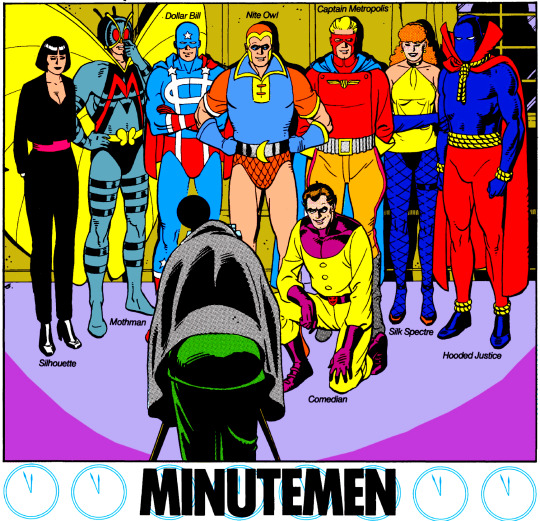
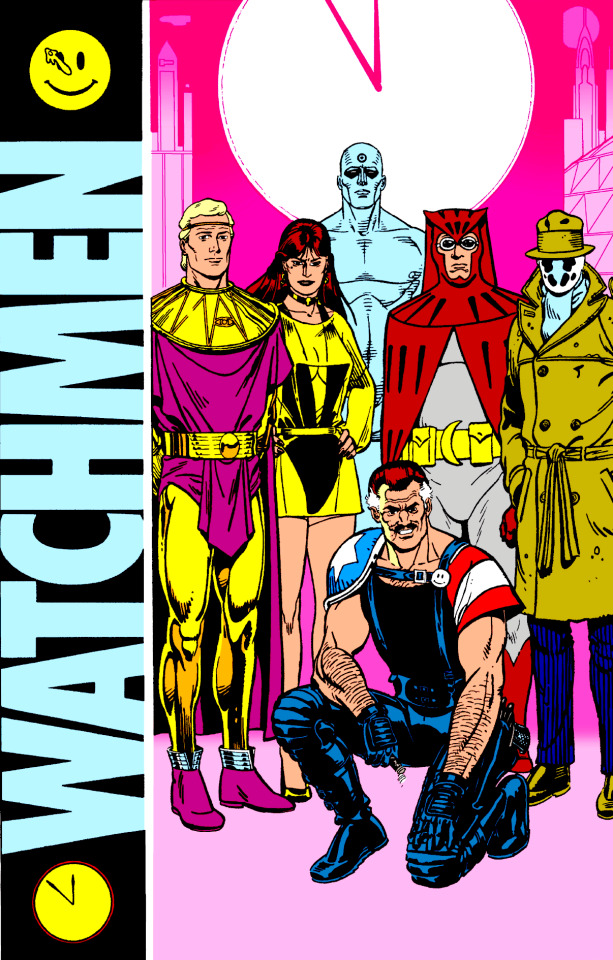

Minutemen/Watchmen in Who's Who: Update '87 #4-5
#watchmen#minutemen#dr manhattan#dc comics#silk spectre#rorschach#the comedian#ozymandias#nite owl#dc#dollar bill#captain metropolis#hooded justice#silhouette#doctor manhattan#who's who directory
226 notes
·
View notes
Photo

i hope it's accurate
#watchmen#silhouette#ursula zandt#ozymandias#hooded justice#lady trieu#silk spectre#laurie juspeczyk#captain metropolis#looking glass#wade tillman#the comedian#edward blake#red scare#pirate jenny#nite owl#dan dreiberg#hollis mason#angela abar#sister night#rorschach#walter kovacs
90 notes
·
View notes
Photo
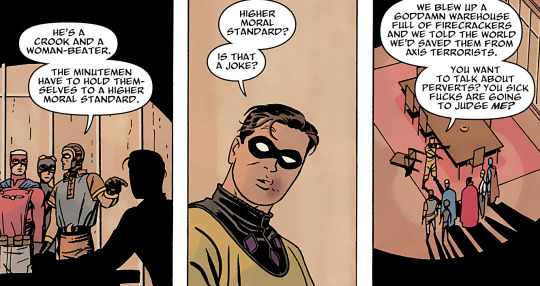
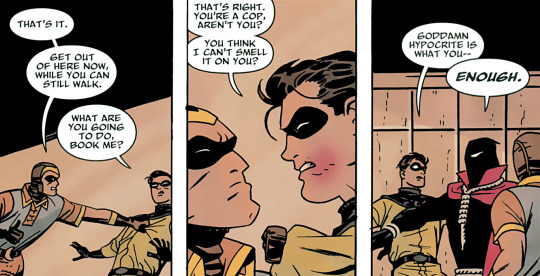
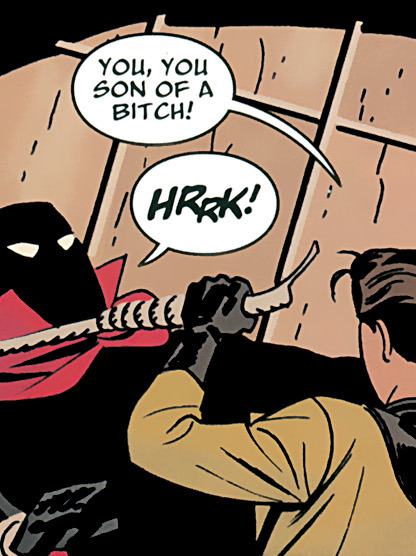
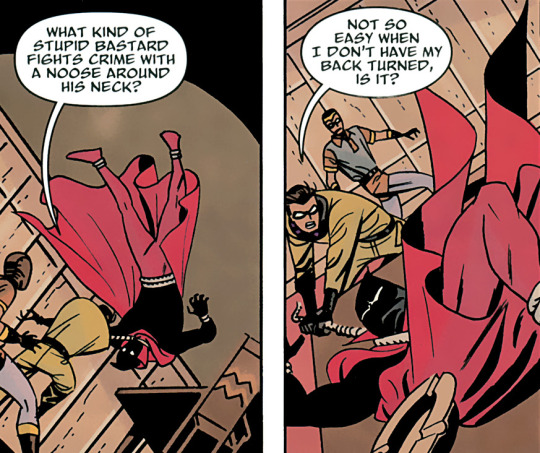
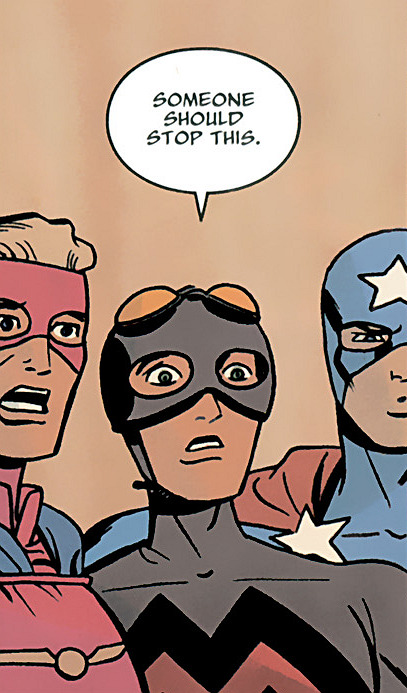
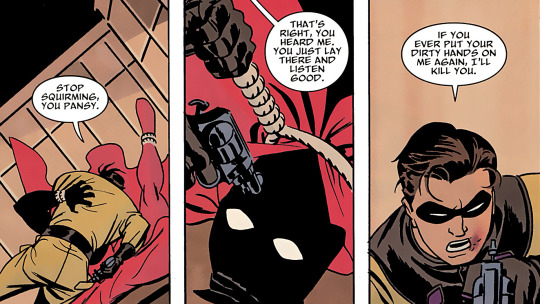
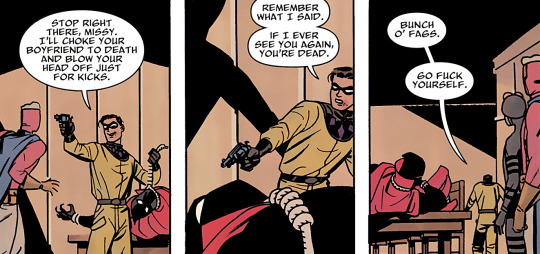
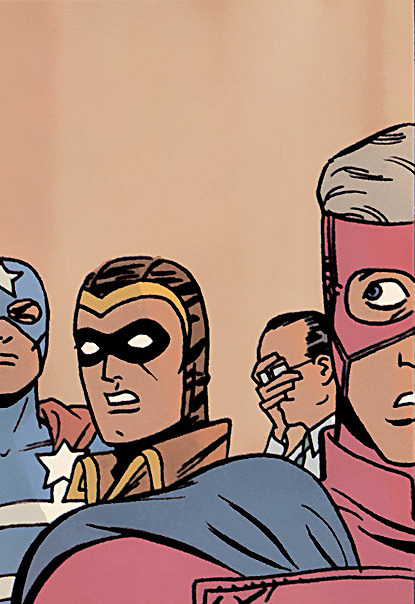
He’s a crook and a woman-beater. The Minutemen have to hold themselves to a higher moral standard.
Before Watchmen: Minutemen (2012) #3
#before watchmen: minutemen#minutemen#watchmen#nelson gardner#captain metropolis#byron lewis#mothman#hollis mason#nite owl#edward blake#eddie blake#the comedian#hooded justice#bill brady#dollar bill#dc#dc comics#u can reblog#f slur cw#homophobia cw#i just thought this was like. a fantastic sequence abt the consequences of hj & capt being so open to the group#but also lmao at the one review i saw complaining about how eddies portrayed as a hero...no hes very much not
23 notes
·
View notes
Photo
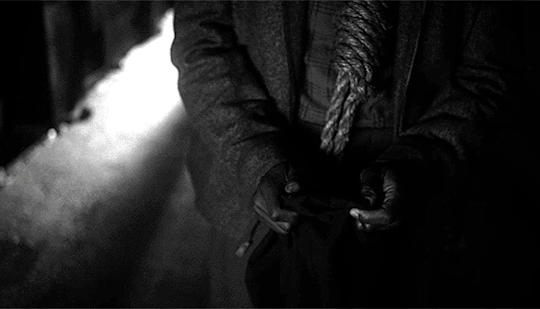
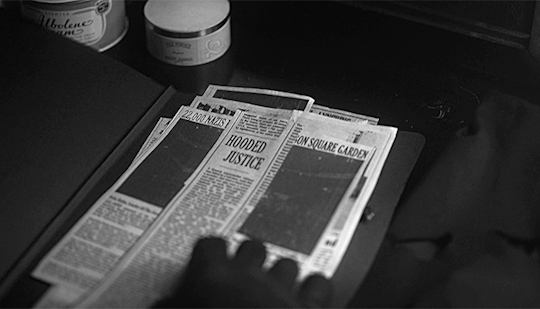
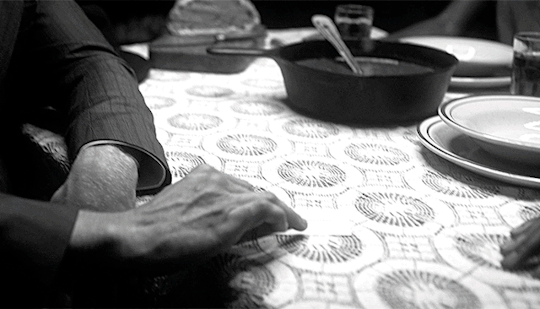
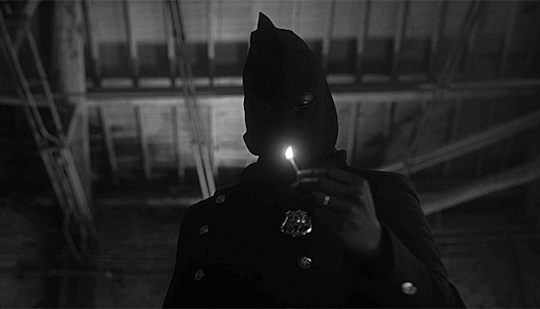
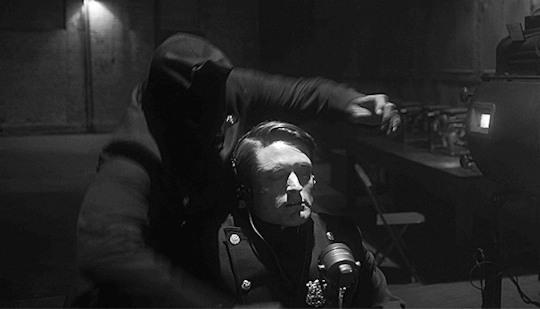
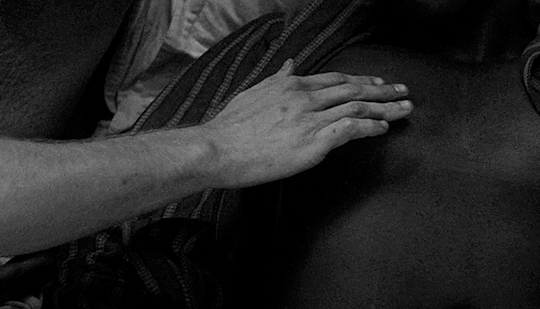
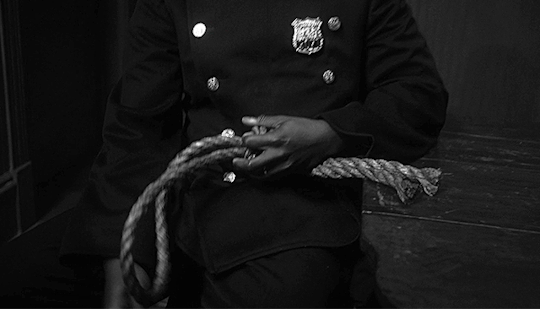
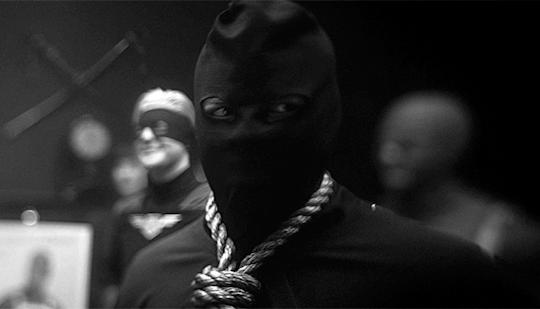
#watchmen#watchmen hbo#hooded justice#will reeves#nelson gardner#captain metropolis#jovan adepo#watchmen 2019#watchmenedit#rewatched this today#soooo good#i want more watchmen content#my stuff
71 notes
·
View notes
Text
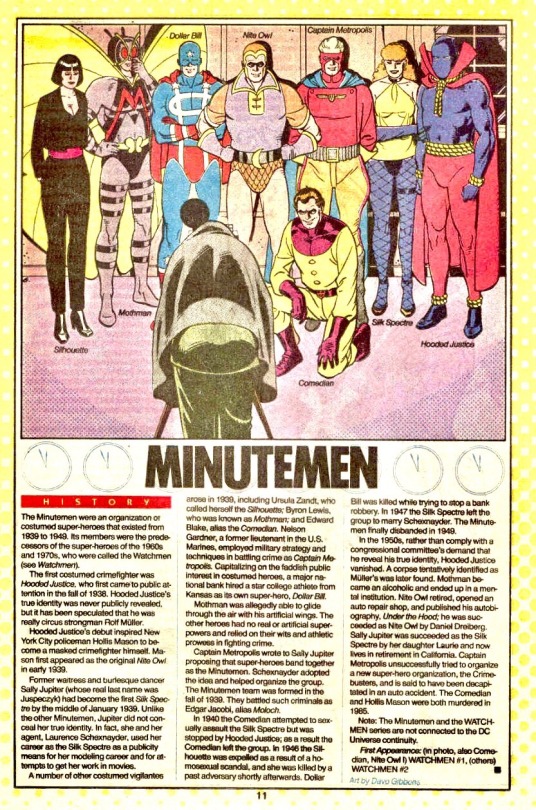
#minutemen#watchmen#before watchmen#silhouette#mothman#dollar bill#nite owl#captain metropolis#comedian#silk spectre#hooded justice#dc comics#dave gibbons#80s comics
27 notes
·
View notes
Note
About Will/Nelson (Watchmen). I think Nelson did love him. Why leave him his house if he didn't?
Sorry for the super late reply omg. I missed this ask initially and then forgot about it. 🙈
BUT to answer your question; yes I absolutely think Nelly loved Will. But in such a way that Nelson looked back on their relationship and realised: "Shit, he was the best thing that ever happened to me and I treated him like garbage".
Anyway they're forever in my heart and this show still has all my love!! 🤩❤🔥💯👏
19 notes
·
View notes
Text
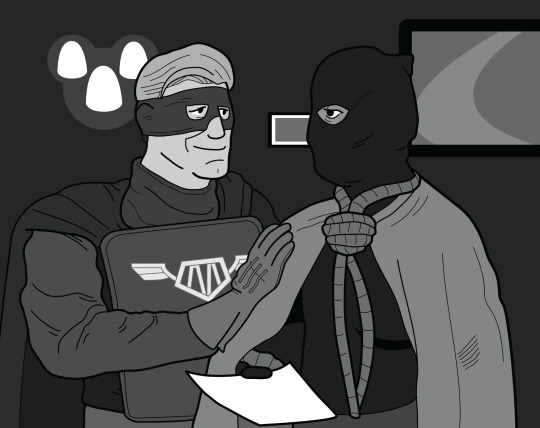
Week 2 - Colors
📽 Day 12 - Grayscale
.
Hooded Justice and Captain Metropolis are gay and appear in HBO's WATCHMEN
#lgbtincomics#hooded justice#hbo watchmen#watchmen#watchmen hbo#pride#lgbt#lgbtqia#captain metropolis#minutemen
43 notes
·
View notes